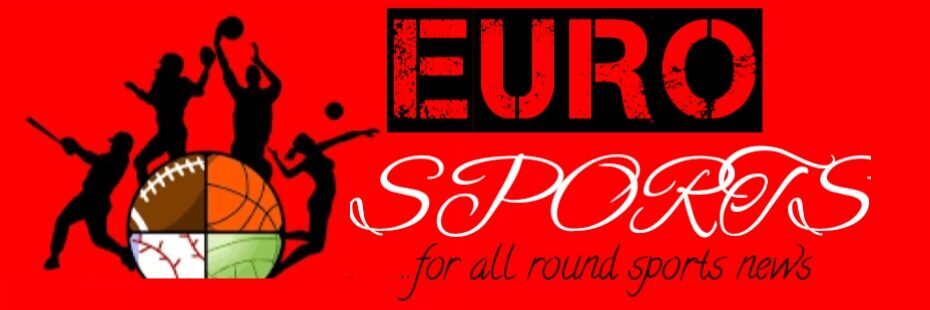Efforts to bring a Major League Baseball team to the Austin area are currently in progress, with the recent formation of a new group dedicated to rallying support for a potential professional franchise.
Austin has successfully attracted pro teams such as Major League Soccer’s Austin FC in 2021 and the Professional Bull Riders’ Austin Gamblers in 2022, and it regularly hosts Formula 1 events at Circuit of the Americas. Despite Central Texas being home to minor league teams like the Round Rock Express, Texas Stars, and Austin Spurs, as well as the Texas Longhorns at the college level, it has yet to secure a team from any of the four major North American sports leagues.
It’s uncertain how Major League Baseball will approach league expansion—a process that might not begin for several more years, if it happens at all. Nevertheless, some local residents and public officials are already preparing for a new team and advocating for the region as the ideal location for a new pro baseball market.
“It is time for Austin to join the big leagues. That is what our effort is about. And we think of the four major sports, we have the best chance to get a baseball team in the near or medium term,” said Matt Mackowiak, co-founder of the newly-formed Austin Baseball Commission and chair of the Travis County Republican Party, on July 16.
MLB hasn’t expanded since the late 1990s, and the prospect of adding new teams remains uncertain for now. The league did not respond to a request for comment regarding future expansion.
Despite the lack of an official process, Mackowiak and his fellow commission co-founder Derrik Fox believe it’s crucial to start planning and engaging with the community ahead of any formal league initiatives.
Until this summer, Central Texas had not seen any publicized efforts related to bringing MLB to the area. The founders were inspired to act by more organized groups in cities like Nashville, Portland, Salt Lake City, and Orlando, which may end up competing with Austin for MLB rights.
The Austin Baseball Commission will now focus on building community support, evaluating potential stadium sites, and developing a financial plan that includes a “credible” ownership group.

As of this summer, others are also considering Central Texas for a major league role. Austin MLB was established last spring and has been working behind the scenes on a potential major league plan since then.
Founder Jason Gindele doesn’t anticipate MLB expanding for at least five years, if not longer. In the meantime, Austin MLB is assembling a coalition of former baseball players, business and community leaders, and potential owners to pave the way forward.
“MLB has told us that a strong ownership group, a viable stadium plan, and a coalition of key stakeholders will be necessary to secure a franchise. Those are all in progress,” he said in an email.
Mackowiak, Fox, and Gindele all highlighted Austin’s growing population, high income levels, diverse economy, successful recent launch of a pro team, and extensive experience with international events as factors that make it an ideal candidate.
“Very few cities can match those qualifications,” Gindele noted.
Mackowiak emphasized that if the region can organize and fund what will likely be a $3 billion-plus plan, Austin would be the top choice for a new market.
“If this is a fair fight—meaning if Austin gets in the game, gets organized, shows community support, and assembles an investor group… the only conclusion the league can reach is that Austin needs to be one of their two expansion markets,” Mackowiak said.
Jeremy Martin, president and CEO of the Austin Chamber, agreed that the city is on much stronger footing now compared to the ’90s when the Phoenix and Tampa Bay metro areas were the latest additions to MLB’s franchise roster.
He pointed out that Central Texas is “underserved” in terms of pro sports and has the financial capacity to sustain a new team. However, Austin will need to solidify its stadium and finance plans to meet league expectations.
“[MLB Commissioner Rob Manfred] has made it clear that he wants every existing franchise to have a stable, long-term strong operating agreement with their stadiums, and that has been the key priority to ensure that franchise stability,” Martin said.
He cited venues like COTA, Austin FC’s Q2 Stadium, and the partnership between the Gamblers and the Moody Center as examples of the types of local arrangements that are “critically important” for team success. This is especially crucial given MLB’s lengthy season with over 80 home games, plus any playoff appearances. Martin emphasized that the Austin business community would need to play a strong advocacy role to support any future team, similar to its role when Austin FC was proposed.
Kristin Marcum, owner and CEO of the communications firm ECPR Texas, who was involved in the outreach efforts for Austin FC’s arrival, emphasized the importance of building grassroots support citywide before addressing larger stadium and financing questions.
“One thing the Austin FC team did really well was having conversations in all corners of the community early on,” she said. “If there’s someone leading this effort or a group of people, that’s the best thing to do—have conversations. What would people like to see in an MLB team? How can it be additive to the community?”
Challenges and Considerations
Any new MLB club would face significant challenges before its first pitch.
Stakeholders noted that dealing with the Texas Rangers and Houston Astros would be part of the process. Gindele mentioned that the two established Texas franchises likely wouldn’t relinquish their presence in Central Texas without compensation, an issue that would need to be resolved “inside baseball.”
“I understand that the Rangers and the Astros are probably not going to want a third Texas team. But there are 30 owners, and 28 of them don’t have teams in Texas,” Mackowiak said. “They’re going to make their decision not on Austin’s proximity to Dallas and Houston but on Austin’s relative value to the league and to the value of their team, and to the value of the next television deal.”
The Rangers and Astros did not respond to requests for comment.
A future team and stadium in the Austin area might also be supported by public funds, as has been the case in previous MLB expansions. While Gindele said it is too early to finalize any specifics on government collaborations—especially since many local officials might leave office before any expansion begins—he pointed to Austin FC’s stadium deal on city-owned land as a model approach. Mackowiak and Fox also stressed the importance of securing local government buy-in as team and stadium planning proceed.
Austin Mayor Kirk Watson mentioned he had been briefed on the commission’s work and anticipated more developments.
“I love professional sports and look forward to seeing how things go,” he said in a statement.
Williamson County Judge Bill Gravell has been working on the possibility of bringing MLB north of Austin for years and is excited by the current discussions. He cited the county’s collaborations with companies like Samsung, Dell, and Apple, and attractions like Dell Diamond and Kalahari Resort, as positioning it as a competitive option for the league.
“I’m an optimist, and I’ve worked on landing billion-dollar companies. To me, this is just another billion-dollar project,” Gravell said. “What do I think the possibilities are? If you have passion with the right location and right people, anything’s possible. Williamson County is a place where big things happen, and this is just another big thing that I think is coming our way.”
Even if Williamson County isn’t the home of a future MLB team, Gravell said he would still support bringing a franchise to Central Texas. He has been in touch with the league and plans more conversations with MLB, equity investors, and those involved in stadium site selection.
Marcum also advised groups supporting an MLB team to work regionally beyond Austin during early planning.
“Maybe don’t even look at this as Austin’s team, but as Central Texas’s team, and work alongside all of the communities up and down the I-35 corridor,” she suggested.
A crucial figure in any future MLB expansion effort is Reid Ryan, a longtime Texas baseball fixture. Ryan, son of Baseball Hall of Famer Nolan Ryan, is the CEO of Ryan Sanders Baseball, which owns and operates the Express and is involved with the minor league San Antonio Missions. He currently serves on MLB’s player development board overseeing the minor leagues.
Despite the growing anticipation for MLB’s future plans, Ryan believes hopes for a new team may not align with the current league-wide realities. He suggested that several other issues would likely take priority before expansion begins.
“Once that process is communicated to the baseball community and to the world, then people can seriously plan what that would look like for a group to come in and do that,” he said.
If MLB seeks to expand, Gindele stated that Austin MLB is preparing for a long-term effort.
“Cities vying for a team have to be in this for the long haul—think of it as a 162-game season and not just a weekend series,” he said. “There is uncertainty about whether expansion will take place, no definitive timeline for that potential window of opportunity, and the selection process could take up to two years. A team likely wouldn’t start play until 2-4 years after that.”
With control of the territorial rights for Austin’s market, Ryan’s baseball partnership would be involved in any future discussions over a Central Texas major league team. For now, he said the focus remains on ongoing work with the local baseball community—supporting RBI Austin’s move to a new home near Colony Park, overseeing the Express, and planning for a new stadium in San Antonio.
“We’d definitely want to be a part of anything that came to Central or South Texas. But until we believe that’s a reality, we really want to focus on the here and now, ensuring we have one of the best facilities in AAA baseball. When the time comes, we’ll be ready,” Ryan said.

